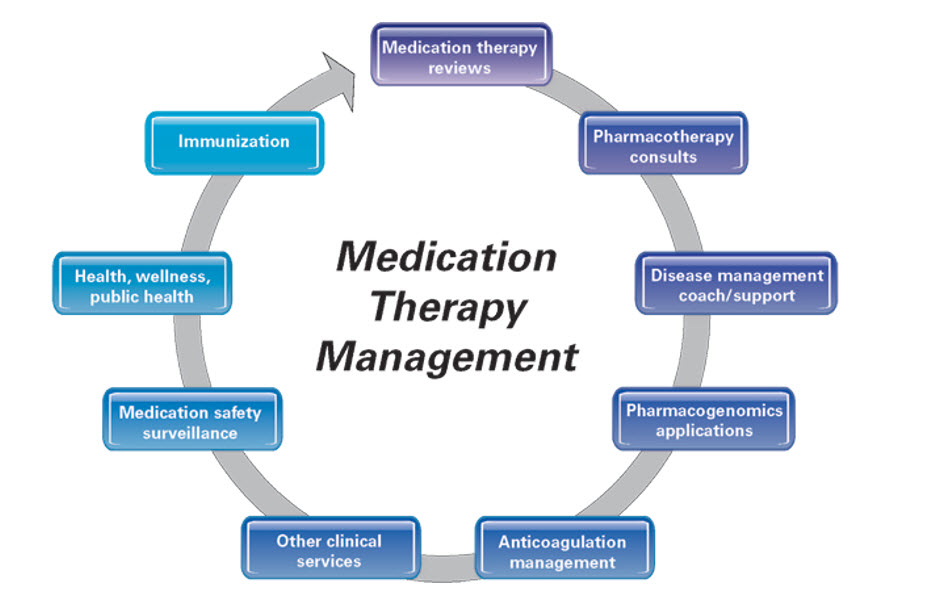
What is Medication Management? A Guide to Safe and Effective Treatment
Medication management is a crucial component of healthcare that ensures the safe, effective, and appropriate use of medications for treating mental and physical health conditions. At Cordial Psychiatry, we are dedicated to providing personalized medication management services to help individuals achieve optimal health outcomes.
What is Medication Management?
Medication management refers to a structured approach to prescribing, monitoring, and optimizing medications for individuals. This process is designed to ensure that medications are taken as prescribed, avoid potential drug interactions, and improve the overall effectiveness of treatment. It involves a collaborative effort between healthcare providers, patients, and sometimes their families.
Why is Medication Management Important?
Medication management plays a pivotal role in ensuring:
- Safe Use of Medications: Proper oversight minimizes risks such as adverse drug reactions or harmful interactions.
- Improved Treatment Outcomes: Tailored adjustments enhance the effectiveness of treatment plans.
- Adherence to Prescriptions: Encouraging patients to follow prescribed dosages prevents underuse or overuse.
- Cost-Effective Care: Reducing medication-related complications can significantly lower healthcare costs.
Key Components of Medication Management
Comprehensive Evaluation
A thorough assessment of a patient’s medical history, current health status, and existing medication regimen is the first step. At Cordial Psychiatry, our clinicians consider:
- Existing diagnoses and treatments
- Potential side effects
- Patient lifestyle and preferences
Personalized Medication Plans
Each individual’s needs are unique. We design medication plans that consider:
- Dosage accuracy
- Frequency and timing
- Minimizing side effects
- Addressing specific health goals
Monitoring and Follow-Up
Regular follow-ups are essential to evaluate progress and make necessary adjustments. Monitoring includes:
- Tracking treatment effectiveness
- Identifying adverse reactions early
- Ensuring adherence to the medication plan
Patient Education
Empowering patients with knowledge about their medications fosters compliance and confidence. Our team explains:
- How each medication works
- Possible side effects
- Importance of sticking to prescribed doses
Coordination with Other Healthcare Providers
Effective communication between primary care providers, specialists, and pharmacists ensures a holistic approach to treatment.
Medication Management for Mental Health
Managing medications for mental health conditions requires expertise and sensitivity. Common conditions treated at Cordial Psychiatry include:
Depression
Medications such as selective serotonin reuptake inhibitors (SSRIs) are commonly prescribed. Regular monitoring ensures:
- The correct dosage is maintained
- Side effects are managed effectively
Anxiety Disorders
Anti-anxiety medications, such as benzodiazepines or SSRIs, require careful management to avoid dependency and optimize therapeutic effects.
Bipolar Disorder
Mood stabilizers and antipsychotic medications play a central role in managing bipolar symptoms. Medication management minimizes mood fluctuations and ensures stability.
ADHD (Attention-Deficit/Hyperactivity Disorder)
Stimulant and non-stimulant medications can improve focus and reduce impulsivity. Adjusting dosages based on individual responses is a key aspect of management.
Schizophrenia
Antipsychotic medications are vital for symptom control. Ensuring adherence is critical to prevent relapses and maintain quality of life.
Benefits of Professional Medication Management
At Cordial Psychiatry, we offer professional medication management services that provide:
- Expert Guidance: Skilled clinicians ensure safe and effective medication use.
- Personalized Care: Every treatment plan is tailored to individual needs.
- Peace of Mind: Patients and families can trust in the quality of care provided.
- Improved Health Outcomes: Regular monitoring optimizes treatment results.
How to Prepare for a Medication Management Appointment
Gather Your Medical Information
Bring a list of all current medications, including over-the-counter drugs and supplements.
Be Honest About Your Symptoms
Sharing accurate details about your symptoms helps create an effective treatment plan.
Ask Questions
Understanding your treatment fosters trust and adherence. Don’t hesitate to inquire about medication purposes, potential side effects, and expected outcomes.
Follow Up Regularly
Consistent follow-ups allow adjustments to improve your treatment journey.
Common Challenges in Medication Management
Non-Adherence
Skipping doses or stopping medication prematurely can hinder recovery. Open communication with healthcare providers helps address these issues.
Side Effects
Unpleasant side effects may discourage patients from continuing treatment. Regular check-ins ensure that side effects are managed effectively.
Drug Interactions
Combining medications without professional guidance can lead to adverse effects. Our clinicians carefully review all prescriptions to avoid such risks.
How Cordial Psychiatry Supports Your Medication Needs
At Cordial Psychiatry, we prioritize:
- Collaborative Care: Working closely with patients to create a plan that aligns with their goals.
- Holistic Treatment: Integrating medication management with therapy and lifestyle changes for comprehensive care.
- Accessibility: Offering convenient appointments to address your concerns promptly.
Conclusion
Medication management is a vital aspect of achieving safe and effective treatment. Whether you’re managing mental health conditions or other chronic illnesses, professional guidance ensures optimal outcomes. At Cordial Psychiatry, we are committed to providing exceptional care tailored to your needs.

